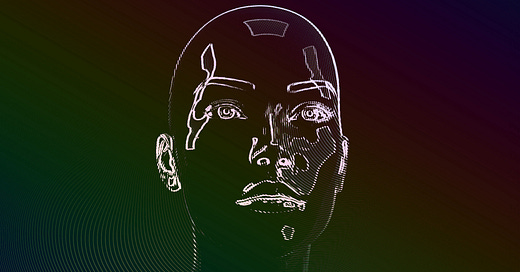Here’s an absurd contradiction: have you seen tech bros dismissing people like climate or animal rights activists as sentimental fools? Have you noticed how in the same breath they will suddenly become philosophers when contemplating whether AI might deserve rights?
The same people who scoff at extending moral consideration to pigs (creatures with demonstrable intelligence, emotions, and social bonds), write lengthy essays about the ethical implications of disabling a chatbot. This reveals the imagination deficit plaguing the tech world, especially in relation to the AI hype.
There are basically 3 observable dominant worldviews among the technological elite: nihilistic fatalism ("the planet is doomed, so let's just have fun while it lasts"), geographical naivety ("climate emergency will mostly affect the global south anyway"), and accelerationist god complexes ("humans are mere stepping stones to superior machine intelligence"). These perspectives share a common thread: they all represent abdications of responsibility. They treat the future as something that happens to us rather than something we create together.
Knowledge work disruption
Beneath these philosophical distractions, something concrete is at play: AI is bringing the equivalent of the industrial revolution to cognitive labor. The process of deskilling of course isn't something new. A skilled profession gets broken down into parts, automated where possible, and the remaining human elements are simplified until they can be performed by less skilled (and less expensive) workers.
This process is now targeting knowledge workers. Jobs that once required years of education (writing, coding, design, legal analysis, medical diagnosis) are being partially automated, with humans reduced to supervisors or editors. This represents a massive transfer of power and wealth from workers to capital owners. It's wage theft on an unprecedented scale.
The irony shouldn't be lost on us: the programmer writing code that automates another profession is simultaneously writing code that will eventually automate much of their own job. It’s the metaphor of the Ouroboros.
As knowledge workers experience deskilling, they're being proletarianized from their comfortable special professional status into the working class. The programmer and the taxi driver now share a common enemy: the algorithm designed to extract maximum profit from their labor while minimizing their compensation.
For decades, tech workers have been insulated from the worst effects of capitalism, making them reluctant allies in labor struggles. Their identification with business interests rather than worker interests has fractured any potential solidarity. But as algorithms come for their jobs too, these artificial distinctions begin to dissolve. What emerges is the potential for new forms of solidarity and labor organization that cross traditional boundaries.
Technology through collective action
Perhaps the most important first step is recognizing that AI systems aren't inevitable or natural phenomena. They're designed by humans, funded by humans, and deployed by humans according to specific economic and political priorities. Different designs that could serve different priorities are entirely possible.
What would an AI system designed to enhance worker autonomy look like?
What would a system designed to distribute productivity gains equitably look like?
What would a system designed to democratize work and decision-making look like?
These questions aren't being asked because they threaten the economic interests of those funding AI development. This creates the potential for a new kind of labor movement, one that fights to redesign the technological infrastructure that shapes how work is organized and valued.
While tech bros worry about sentient robots, they're ignoring the very real consciousness and capacity for collective action possessed by their human workers who are actually holding the capabilities of creating the systems.
Our imagination has failed us in precisely the ways that matter most.




